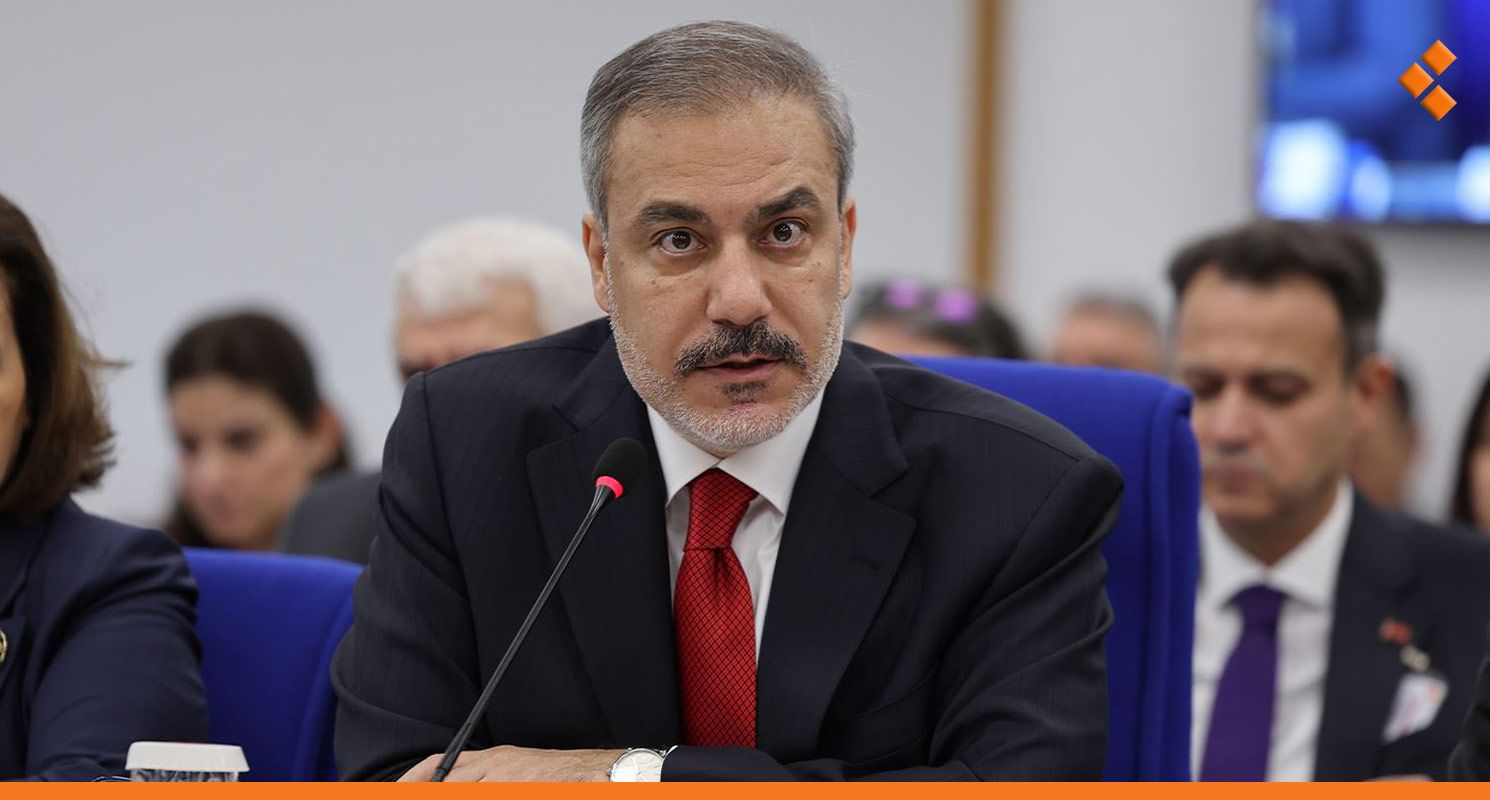After escalating tensions between Turkey and Syria, which have been described as increasingly hostile, Turkish Foreign Minister Hakan Fidan made statements on Sunday that diverged from his earlier remarks regarding the potential rapprochement between Ankara and Damascus. These developments came amid Turkish President Recep Tayyip Erdoğan’s announcement to proceed with the “safe zone” project in northern Syria, which effectively resets the process of rapprochement with Syria. Meanwhile, Damascus has maintained a firm stance on the issue, with President Bashar al-Assad emphasizing that the core of the conflict with Turkey centers on Ankara’s support for terrorism and its presence in Syrian territory.
During a meeting with journalists in Ankara, Fidan expressed that Turkey preferred to address outstanding issues with Damascus through dialogue, within a “more organized and diplomatic” framework. This marked a shift from his previous statements in which he conditioned reconciliation on the Syrian government reaching an agreement with the “opposition” and adopting a new constitution before withdrawing Turkish forces from northern Syria. Fidan clarified that these were not preconditions, but rather steps that he saw as necessary for a practical resolution to the conflict.
Turkey did not aim to occupy Syrian territory or pursue regime change
Furthermore, while Fidan had earlier indicated that the Syrian government was not ready for peace with Turkey, he acknowledged on Sunday that the Syrian side seemed “neither ready nor very open” to discussions, especially amid the ongoing Israeli military actions in the region. However, he emphasized that Ankara had shown “good intentions” toward rapprochement and reassured that Turkey did not aim to occupy Syrian territory or pursue regime change. Fidan also highlighted the importance of addressing issues such as counter-terrorism efforts and the refugee crisis.
On the role of Iran and Russia in the Turkish-Syrian rapprochement, Fidan noted that the issue was not a priority for either country at the moment. He added that, given the current ceasefire in the region, neither Iran nor Russia had focused efforts on advancing the rapprochement process.
In conclusion, Fidan suggested that the existing Astana framework for resolving the Syrian crisis should be replaced with a more effective structure, though he acknowledged the Astana talks’ contribution to the ongoing ceasefire in Syria.
This article was translated and edited by The Syrian Observer. The Syrian Observer has not verified the content of this story. Responsibility for the information and views set out in this article lies entirely with the author.


